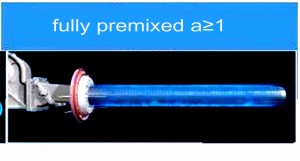- Afrikaans
- Albanian
- Amharic
- Arabic
- Armenian
- Azerbaijani
- Basque
- Belarusian
- Bengali
- Bosnian
- Bulgarian
- Catalan
- Cebuano
- China
- China (Taiwan)
- Corsican
- Croatian
- Czech
- Danish
- Dutch
- English
- Esperanto
- Estonian
- Finnish
- French
- Frisian
- Galician
- Georgian
- German
- Greek
- Gujarati
- Haitian Creole
- hausa
- hawaiian
- Hebrew
- Hindi
- Miao
- Hungarian
- Icelandic
- igbo
- Indonesian
- irish
- Italian
- Japanese
- Javanese
- Kannada
- kazakh
- Khmer
- Rwandese
- Korean
- Kurdish
- Kyrgyz
- Lao
- Latin
- Latvian
- Lithuanian
- Luxembourgish
- Macedonian
- Malgashi
- Malay
- Malayalam
- Maltese
- Maori
- Marathi
- Mongolian
- Myanmar
- Nepali
- Norwegian
- Norwegian
- Occitan
- Pashto
- Persian
- Polish
- Portuguese
- Punjabi
- Romanian
- Russian
- Samoan
- Scottish Gaelic
- Serbian
- Sesotho
- Shona
- Sindhi
- Sinhala
- Slovak
- Slovenian
- Somali
- Spanish
- Sundanese
- Swahili
- Swedish
- Tagalog
- Tajik
- Tamil
- Tatar
- Telugu
- Thai
- Turkish
- Turkmen
- Ukrainian
- Urdu
- Uighur
- Uzbek
- Vietnamese
- Welsh
- Bantu
- Yiddish
- Yoruba
- Zulu
Jul . 31, 2024 14:07 Back to list
Choosing the Ideal Boiler to Meet the Heating Needs of Your Home Efficiently
Choosing the Best Boiler for Your House
When it comes to heating your home efficiently, one of the most critical decisions you'll make is selecting the right boiler. With a variety of options available in the market, understanding what boiler suits your household needs best can save you money, improve comfort, and enhance energy efficiency. This article will guide you through the key factors to consider when choosing the best boiler for your house.
Types of Boilers
The first step in selecting a boiler is understanding the different types available
. The three primary categories are1. Combi Boilers These are compact and provide both heating and hot water on demand without the need for a storage tank. Ideal for smaller homes, they are energy-efficient and take up less space.
2. System Boilers These boilers are a great option for larger homes with multiple bathrooms. They store hot water in a cylinder, meaning you can run several taps simultaneously without running out of hot water. They are more complex than combi boilers and require a bit more installation space.
3. Regular Boilers (Conventional or Heat Only) Best suited for larger homes with an existing traditional heating system, regular boilers require a hot water cylinder and a cold water storage tank. They can provide high-pressure hot water and are ideal for households with high hot water demand.
Size and Output
Choosing the right size and output for your boiler is crucial. A boiler that is too small will struggle to heat your home adequately, while one that is too large can result in wasted energy and higher bills. To determine the right size, you’ll need to consider your home’s square footage, the number of radiators, and the hot water requirements. Consulting with a heating professional can provide valuable insights into the appropriate output rating measured in kilowatts (kW) for your home.
best boiler for my house

Efficiency Ratings
Energy efficiency is another essential factor. Look for boilers with high energy efficiency ratings, typically expressed as an Annual Fuel Utilization Efficiency (AFUE) percentage. Modern condensing boilers often achieve over 90% efficiency, meaning they convert a large proportion of the fuel they use into usable heating. Although these might have a higher upfront cost, the long-term savings on your energy bills can be significant.
Fuel Type
Consider the fuel type available in your area. Common options include natural gas, oil, propane, and electric. Gas boilers are typically the most cost-effective option if you have a natural gas supply, while oil boilers may be more efficient in regions where natural gas is not available. Electric boilers are often simpler to install and maintain but can be more expensive to operate in some cases.
Installation and Maintenance
The installation of a new boiler should always be carried out by a qualified professional. This ensures safety and compliance with local regulations. Additionally, remember that regular maintenance is vital to keep your boiler operating efficiently and prolong its lifespan. Annual servicing from a qualified technician can help identify potential issues early and ensure that your boiler runs smoothly.
Conclusion
Choosing the best boiler for your house involves considering various factors such as type, size, efficiency, fuel type, and installation requirements. By taking the time to assess your specific needs and consulting with professionals, you can make an informed decision that not only enhances the comfort of your home but also saves you money in the long run. Investing in the right boiler will ensure that you stay warm during the colder months while enjoying the peace of mind that comes from an efficient heating system.
-
Premium Cast Iron Water Main Pipe: Durable, Corrosion-Resistant
NewsAug.03,2025
-
Durable Cast Iron Water Mains | AI-Optimized Systems
NewsAug.02,2025
-
High-Efficiency Propane Boiler for Baseboard Heat | Save Energy
NewsAug.01,2025
-
Premium Source Suppliers for Various Gray Iron Castings
NewsJul.31,2025
-
Durable Cast Iron Water Main Pipes | Long-Lasting
NewsJul.31,2025
-
High-Quality Cast Iron Water Main Pipe for Durable Infrastructure
NewsJul.30,2025


